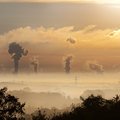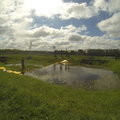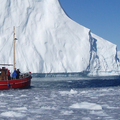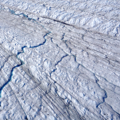News
27 November 2019
Measuring air pollution street by street

"My research focuses on the use of remote sensing data to improve the modelling of air quality in polluted areas such as the Rijnmond near Rotterdam that is known to have the highest level of air pollution in the Netherlands. Everything is jammed together there: traffic, power stations, shipping and industry. The area is the most relevant one in the country for research into determining air pollution. Incidentally, we also focus on other countries: we want to implement our approach in New Delhi, one of the world’s most polluted cities.
25 November 2019
BRIGAID: Solutions for extreme climate events

Climate scientists are predicting an increase in droughts, floods and other extreme weather events as a result of continuing global warming. BRIGAID (Bridging the gap for Innovations in Disaster Resilience), an ambitious programme initiated by a partnership of European universities, research institutes and businesses in May of this year, is aimed at finding innovative ways of coping with the increased likelihood of natural disasters of this kind. Bas Jonkman (39), Professor of Integral Hydraulic Engineering at TU Delft’s faculty of Civil Engineering and Geosciences will be heading this multifaceted programme for the next four years.
12 November 2019
Clouds and climate

Herman Russchenberg is engaged in intensive and extensive research into the causes of climate change. His own research involves investigating the role played by clouds and dust particles in the atmosphere, but he is also head of the TU Delft Climate Institute, established in March 2012 to bring together TU Delft researchers working on all aspects of climate and climate change. Russchenberg started out in the faculty of Electrical Engineering, conducting research into the influence of the atmosphere (rain, clouds) on satellite signals. After obtaining his PhD in 1992, he shifted his attention to the physics of water vapour, water droplets, dust particles, sunlight, radiation and emissions in the atmosphere. He is now based in the faculty of Civil Engineering and Geosciences.
07 November 2019
The evolution of the Greenland ice sheet

Miren Vizcaino has received an ERC Starting Grant. With this ERC Grant, she will investigate the evolution of the Greenland ice sheet throughout the centuries, in response to anthropogenic climate change. She will compare this with past deglaciations during the last interglacial and the Holocene, in order to improve climate models.
05 September 2019
Rapid snow retreat amplifies North Greenland mass loss

Researchers show a large regional difference between melt in North and South Greenland.